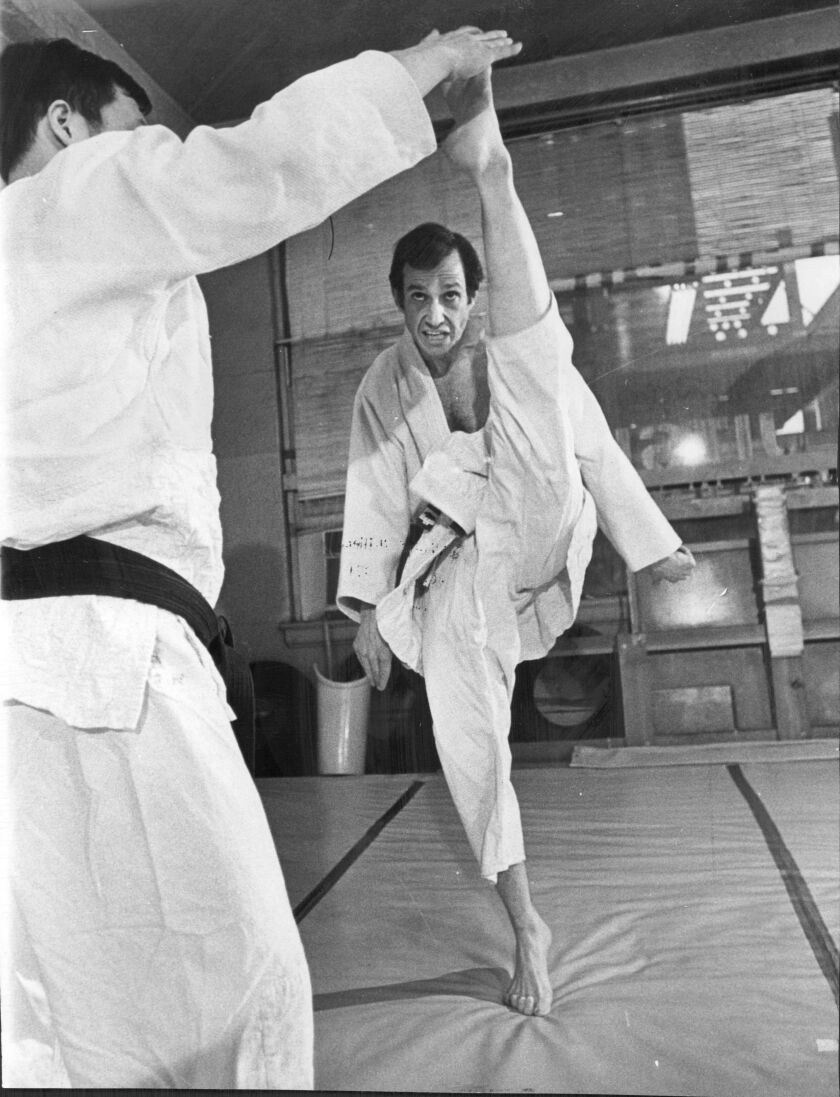Chicago voters had never seen a candidate like Richard E. Friedman when he entered the political ring in 1971 as a Republican seeking to dethrone Mayor Richard J. Daley.
One daily newspaper columnist, faced with the daunting task of summarizing Mr. Friedman, simply dropped a pile of words at his readers’ feet with a lede of “He’s got:” followed by 15 bullet points that included: a kayak, a red motorcycle, an orange Porsche, a hot air balloon, a brown belt in Judo, a glider pilot’s license and “a pretty TV news chick for a girlfriend.”
“He never slowed down, he was always doing something new,” said Mr. Friedman’s wife, Jorie Lueloff Friedman. “And not just anything, things other people would cringe from and do anything to avoid, he’d jump right in and go out of his way to do.”
Lueloff Friedman, a former news anchor on Chicago’s WMAQ-Channel 5, met her future husband while interviewing him on her show.
“A lot of people said why are you taking on Daley? Are you suicidal or what? But he thought it was worth a try and put everything he had in it,” she said.
(And, about that “news chick” label: “He never would have gotten away with those words if he’d said them in the same room as me.”)
Mr. Friedman was a 41-year-old attorney at the helm of the Better Government Association when he decided to challenge Daley and the “corrupt Chicago machine.”
Mr. Friedman, who grew up in Hyde Park, the son of a steel executive, had also served in the Air Force and worked as a deputy Illinois attorney general.
A sprint finish to election day included a visit to Montrose Harbor, where he helped smelt fishermen pull in nets, and a stop at a friendly eatery in the Daley stronghold of Bridgeport.
He lost in a landslide. Daley captured nearly 70% of the vote for a fifth term.
With a laugh, Mr. Friedman later referred to the contest as “a real squeaker.”
Mr. Friedman died April 3 from leukemia while in hospice care in Florida. He was 93.
There were no dull moments in Mr. Friedman’s life.
He motorcycled through West Africa, climbed the hills and mountains of Afghanistan and trekked the jungles of Bolivia, to name a few adventures he fit in while maintaining a professional life.
After the failed mayoral run, Mr. Friedman was appointed regional director of the U.S. Department of Health, Education and Welfare. He was tapped in 1975 to prepare a mothballed military base in Pennsylvania for the arrival on short notice of thousands of Vietnamese and Cambodian refugees, many of whom had worked with the U.S. military and fled their homeland after the fall of Saigon. Mr. Friedman and his wife personally sponsored a family of 13 and guided their transition to a life in Chicago.
“I had the head of the family on my TV show, he’d been an interpreter for the Green Berets, and was such a wonderful guy,” Lueloff Friedman said.
A lesser-known portion of Mr. Friedman’s resume involved national security law.
His mentor was the late Morris Leibman, a Chicago attorney who chaired the American Bar Association’s Standing Committee on Law and National Security, as well as the National Strategy Forum. Mr. Friedman would go on to hold the same titles and carry on the work of hosting renowned figures to lecture and further conversations in the field.
Elizabeth Rindskopf Parker, former general counsel to the National Security Agency and the Central Intelligence Agency, said Mr. Friedman “just knew everybody, everywhere around the world and loved organizing events.”
He also functioned as a sort of “ambassador at large” through various trips to Eastern European countries after the collapse of the Soviet Union, she said.
His close friends included former Supreme Court Justice Lewis Powell; Caspar Weinberger, who served as secretary of defense under President Ronald Reagan; and Elliot Richardson, who held several top cabinet positions under Presidents Richard Nixon and Gerald Ford.
In 1989, Mr. Friedman was tasked with showing Sergei Akhromeyev, a top Soviet military adviser, the “real America” on a three-day visit to Chicago.
When his guest complained that a tour of an Illinois farm had been staged, Mr. Friedman told Akhromeyev to tell their limousine driver to stop at any farm he liked. The one he picked was even more impressive, friends and family recalled.
Holly McMahon, director of the ABA committee, said Mr. Friedman also helped write the constitutions of Eastern European nation of Georgia and Somalia.
“I wish I could say to you, ‘We’re making this all up.’ ... He was so unassuming. You could say to him, ‘You wrote what!?’ And he’d say, ‘Pass the doughnuts.’”
Mr. Friedman had a home in the Kettle Moraine region of Wisconsin and was an avid hot air balloonist. He carried a pouch of wine to pacify farmers who might not like him landing in their fields.
He wrote in a piece that was published in the Sun-Times in 1970: “To stand in a wicker basket, to float above the ground in silence, to drink wine and read poetry and just drift — that is a singular feeling, something few people ever know.”
John Allen Williams, a friend and emeritus political science professor at Loyola University Chicago, called him “the ‘real’ most interesting man in the world.”
Services have been held.





